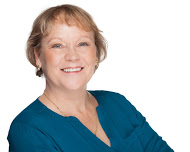Iris Hecker is the California Licensed Professional Fiduciary at Hecker Fiduciary in Redwood City, California. She is also an Enrolled Agent with over 25 years of experience in that field. Many people are not aware of what a fiduciary is. SevenPonds spoke with Iris to find out about the profession and the numerous ways they can be a beneficial person of trust in peoples’ lives.
Editor’s note: This interview has been edited for length and readability.
Lucas Morgan: Hello Iris! We will start with the question I think many people may be wondering about: What is a fiduciary?

Iris Hecker
Iris Hecker: A fiduciary essentially is a person of trust; they do things for your benefit. So people, whether they have family or not, will need someone to help them when they become disabled, whether that be temporary or permanent due to an illness or aging. A fiduciary will have the financial responsibility to make sure all the bills are paid and make financial decisions that are in their best interest. As a fiduciary, I can be granted a power of attorney, be a successor trustee, an executor, or work as a liaison between family members after a client’s death, among other roles. Each situation is different. A fiduciary can work in a temporary role or as a permanent relationship.
I want to reiterate the importance of doing things in the client’s best interest. You really want to honor the wishes of the person. That’s why it’s important to have your estate plan in order ahead of time, particularly to avoid court processes and conservatorships. So fiduciaries meet with people when they have the capacity to make decisions, and we get to know the person. Some people have specific ideas about what they want, not just regarding finances, so we can put all that in writing.
Lucas: When and why did you decide to become a fiduciary?
Iris: I started my profession as an Enrolled Agent, which means I’m a tax professional. I’ve been doing that for about 25 years, give or take. So that was my foundation: small business, corporation and partnership tax returns, accounting, payroll, etc.
Then I had an elderly client who was being abused. Throughout the process, I realized that the neighbors were trying to take advantage of him because he was alone. They were trying to get his house. And there was a fiduciary, attorney and even a social worker who weren’t ethical and were all working together to try and get his property. Restraining orders were eventually granted against the neighbors. The others were kind of let go because we couldn’t prove that they were involved.
Seeing that part of humanity was not a pleasant thing, and the client had no one to rely on otherwise. So that started my career choice to become a professional fiduciary. I’ve been a fiduciary for roughly six years.
Lucas: Do you develop personal relationships with your clients?

Credit: bgardinerlaw.com
Iris: I do, because it is such an honor that they’ve trusted me enough to be their fiduciary. You don’t give that power of attorney to just anyone. That’s such a strong document that if I had to sell their house, I could. I’m given the same powers as if I were them, essentially. So I do not take that lightly. Imagine if you give the wrong person that power; there are so many horror stories. That’s also why it’s important to have someone who’s licensed.
Lucas: If someone wanted to become a professionally licensed fiduciary, how does that whole process work?
Iris: In California, there are classes you can take to become licensed. But you do have to work with someone in that kind of business for a few years, and then take the courses. I personally didn’t have to go through that process because I was already an Enrolled Agent. I do have a fiduciary license now, but I could’ve had clients before that. There is a reporting agency for fiduciaries in California, but not every state has one yet. Each state has different requirements in their fiduciary licensing programs.
Lucas: As a fiduciary, do you develop contacts with professionals from other fields?
Iris: Yes I do. For instance, I can help a client who knows what they’d like for their funeral. But I wouldn’t make those decisions on my own; I would work with funeral professionals. I have to have relationships with all kinds of professionals. I know attorneys, financial advisers, tax accountants, etc.
Sometimes I don’t do the tax return because I don’t want to create a conflict of interest, even though I’m licensed to do that. If there are beneficiaries who are combative, I’m not going to put myself in a position where they claim I did something wrong. If I get something wrong, it’s very easy to lose my license.

Credit: cunninghamlegal.com
Lucas: What’s the difference between an attorney and a fiduciary?
Iris: An attorney drafts documents and creates paperwork. Someone with the power of attorney, like a fiduciary, executes them. For example, an attorney would say, “Iris Hecker, you are the fiduciary for Lucas.” And then you would state all the things I can do for you when you become incompetent. In other words, you can specify under what circumstances I can come in.
Then after the attorney drafts the document, it just stays in your file. Then say, for instance, you are hospitalized for a few months. Your bills need to get paid, among other things, and your power of attorney (fiduciary) does all that for you. When you’re better and out of the hospital, the document goes back on the shelf.
Fiduciaries go into greater detail about what certain decisions would mean. If someone doesn’t know who to talk to, they may go initially to an attorney and become overwhelmed. They can then come to me and I will have a conversation with them explaining the process, and what to think about before you go to an attorney. If they’ve chosen an attorney who gave them an intake form, I will go over that with them. Many people get stressed out when they’re in an attorney’s office and they can’t think clearly.
Lucas: How can a fiduciary help mitigate family disputes and/or sibling rivalry regarding the estate of someone who has died?
Iris: You never know until you meet with them. Before I go into a meeting, I will kind of look at people and try to read their personality. I try to never be combative. For some people, money is the issue. I’ll address that issue and tell them, “This is what’s in the paperwork. I’m here to help you all get through this process.”
I always acknowledge their pain and loss and tell them that I will be fair, but I have to follow the paperwork. If there’s something that’s not clear, we sit down and talk about it. Not every document is very clear about what is supposed to be done. If that happens, you’ll have to bring the parties in to work it out so that we don’t have to hire an attorney.
This concludes part one of our interview with Iris Hecker. Please check back next week for part two of our discussion, when we continue to talk about fiduciaries and the numerous roles they can play.

 What Is A Fiduciary?
What Is A Fiduciary?


 Having an Estate Plan Is Essential – So Is Discussing It With Your Children
Having an Estate Plan Is Essential – So Is Discussing It With Your Children

 “Summons” by Aurora Levins Morales
“Summons” by Aurora Levins Morales














